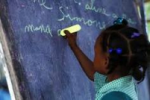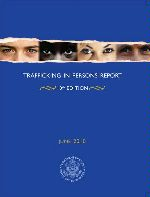Haitian Government Taps External Support to Reconstruct Port au Prince
 A lack of clarity concerning land tenure, limited enforcement of architectural standards, and haphazard urban planning made Port au Prince a city that was both difficult to manage and highly vulnerable to natural disasters. The Haitian government has reached out to an architectural planning charity, the Prince's Foundation for the Built Environment, founded by Britain's Prince Charles, for assistance in reconstructing the historic center of Port au Prince. The Reuters article below provides further details about this new partnership.
A lack of clarity concerning land tenure, limited enforcement of architectural standards, and haphazard urban planning made Port au Prince a city that was both difficult to manage and highly vulnerable to natural disasters. The Haitian government has reached out to an architectural planning charity, the Prince's Foundation for the Built Environment, founded by Britain's Prince Charles, for assistance in reconstructing the historic center of Port au Prince. The Reuters article below provides further details about this new partnership.








